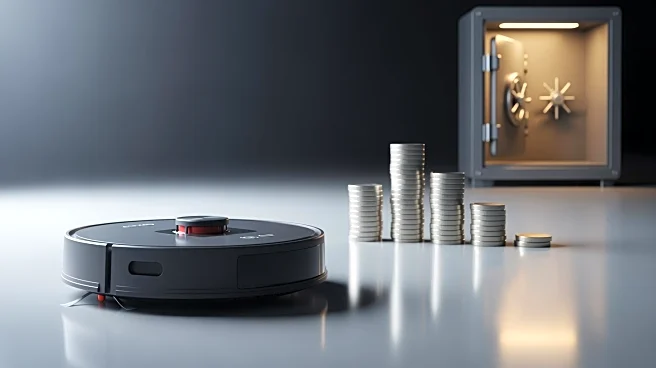What's Happening?
iRobot, the company known for its Roomba vacuum cleaners, reported a significant drop in revenue for the third quarter of 2025. The company earned $145.8 million, marking a 24.6% decrease compared to the same
period in 2024. This decline continues a trend of financial difficulties, exacerbated by market headwinds, production delays, and shipping disruptions. CEO Gary Cohen expressed concerns over the company's ability to leverage its fixed cost base due to these challenges. iRobot's cash reserves have also dwindled, with only $24.8 million available as of late September 2025. The company has no additional sources of capital, raising doubts about its ability to continue operations without new funding. iRobot's struggles are partly attributed to increased competition and a failed acquisition attempt by Amazon.
Why It's Important?
The financial difficulties faced by iRobot highlight the challenges within the consumer robotics industry, particularly for companies that pioneered the market but now face intense competition. The potential bankruptcy of iRobot could have significant implications for its employees, investors, and the broader robotics sector. The company's inability to secure additional capital may lead to operational cutbacks or cessation, affecting its market presence and innovation capabilities. This situation underscores the importance of strategic diversification and adaptation in rapidly evolving tech markets.
What's Next?
iRobot may need to explore alternative strategies to secure funding or restructure its operations to avoid bankruptcy. Potential steps could include seeking partnerships, mergers, or acquisitions to stabilize its financial position. The company's management will likely face pressure to address these issues promptly to reassure stakeholders and prevent further decline. Industry observers will be watching closely for any announcements regarding iRobot's future plans.
Beyond the Headlines
The challenges faced by iRobot reflect broader trends in the tech industry, where early innovators must continuously adapt to maintain their competitive edge. The company's situation may prompt discussions about the sustainability of business models reliant on a narrow product focus and the need for diversification in product offerings.










